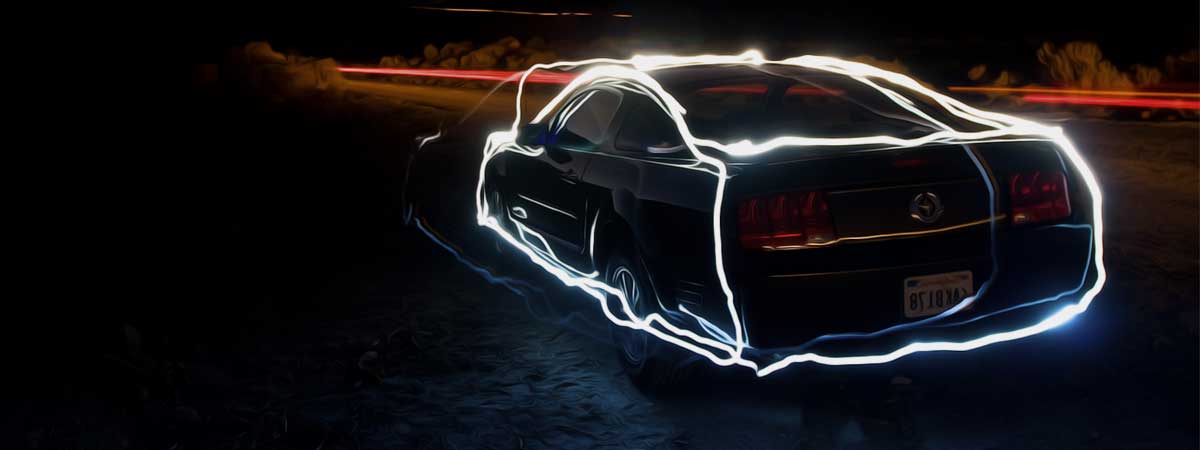“All Our Patent Are Belong To You” read the title of Elon Musk’s blog revealing that Tesla Motors was opening up its patents for other companies to use. The slow uptake of electric cars, which represent far less than on percent of total vehicle sales, motivated Musk to take this drastic action.
In Musk’s words, “Our true competition is not the small trickle of non-Tesla electric cars being produced, but rather the enormous flood of gasoline cars pouring out of the world’s factories every day.” While Tesla Motors has made great strides in forwarding electric vehicles, unfortunately the last real game-changer in transportation was Henry Ford back in 1903.
We need to look at electric vehicles not as cars powered by batteries, but as distributed sources of energy Tweet This Quote
How do we plug the flood of gasoline cars and open the floodgates of electric vehicles? Opening Tesla’s patent trove will help, but the next game changers in transportation need to innovate on what it means to own an electric car. Rather than being bought upfront, electric cars should be leased by customers at a price substantially cheaper a gasoline car. Why can electric cars be cheaper than gasoline cars? Because electric cars can make money by providing additional services to the electrical grid.
We need to look at electric vehicles not as cars powered by batteries, but as distributed sources of energy that just happen to be on four wheels. This perspective creates a two-way street for automobiles and the grid—known as vehicle to grid (V2G) technology. A pilot project at the University of Delaware, headed by Willett Kempton, demonstrates that V2G services have a value of over $5 a day per vehicle. Since you can lease a Nissan Leaf for $200 per month, fully utilizing Kempton’s V2G services could decrease your lease payments on a Leaf to only $50 per month, or 25 percent of the current price. Good luck finding a new gasoline car with a $50 a month lease.
One of the biggest services electric vehicles can provide is grid stabilization. At any moment, the supply and demand for electricity on the electrical grid needs to be nearly equal. For instance, as people wake up and turn on their coffee makers, power generators need to start producing more electricity. Since the supply and demand cannot always easily match up, electric vehicles can help balance supply and demand by pushing electricity onto and off the grid. Batteries can then be used to replace expensive natural-gas plants.
Another key service electric vehicles can provide is backup power to support renewable energy. In California, the peak demand for electricity is roughly 60,000 megawatts. As of 2015, there will be almost 150,000 electric cars out of a total of 30 million registered vehicles. At 20 kilowatts apiece, these electric cars can provide about 3,000 MW of instantaneous power or 5% of the entire grid of storage. As electric cars increase in popularity, it would only take 10 percent of all cars in California to back up the entire grid for a short period of time. This backup power could support high levels of renewable energy penetration making it easier for cheap renewable electricity to power homes and businesses.
Electric vehicle business models will allow for a completely reliable grid powered by renewable energy. Tweet This Quote
Electric vehicles could allow customers to optimize when they buy electricity throughout the day. Customers could store electricity in their electric vehicles at night when it is cheap and use it during the daytime when prices are expensive. This also adds value to utility companies because it reduces the daytime demand peak for electricity, thus allowing generators to run their power plants at a more constant rate making them more efficient.
Entrepreneurs are strategically positioned to disrupt the automobile industry and seizing the opportunities described above will lead to a more affordable electric car. Not only will the adoption of electric vehicles pave a way towards carbon-free transportation, but electric vehicle business models will allow for a completely reliable grid powered by renewable energy. It could create an infinitely scalable industry with compelling financial returns. Doing well by doing good—that’s a true game changer.



